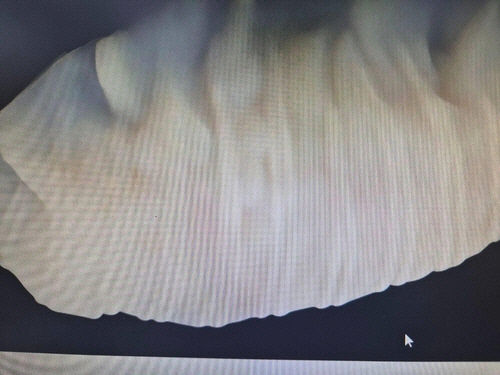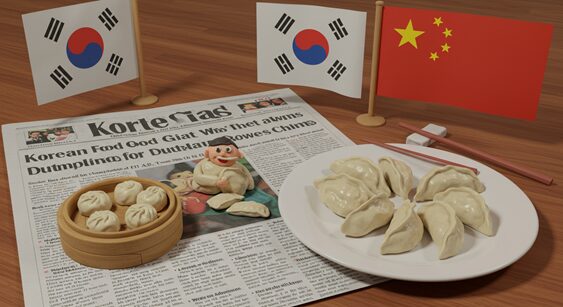Korean Food Giant Wins US Patent for Dumplings, Sparking Cultural Row with China
The global food market has become the latest battleground for cultural ownership as South Korean food conglomerate CJ CheilJedang secured a design patent for its Bibigo dumplings in the United States. This strategic business move has ignited fierce opposition from Chinese media outlets, which claim dumplings as part of China’s cultural heritage. How might this intellectual property victory reshape competition in the global ready-meal market?
Patent Details Reveal Strategic Business Approach
The design patent specifically protects the distinctive appearance of the dumplings, not the concept of dumplings themselves.
- The patent, filed in February 2023 and approved on April 8, 2025, protects the “repeated pattern of two thin pleats” on CJ’s Bibigo dumplings for 15 years
- The unique design was developed to solve manufacturing challenges, specifically preventing dumpling edges from breaking during mass production
- This represents a tactical move to defend market position in North America, where Bibigo has established significant presence
Chinese Backlash Highlights Cultural Tensions
Chinese state media has reacted strongly, framing the patent as an appropriation of traditional Chinese culture.
- The Global Times, a Chinese Communist Party publication, criticized the patent on social media platforms, claiming it infringes on Chinese cultural heritage
- The controversy has sparked heated debates on social platforms about food origins and cultural ownership
- This response reflects broader tensions as Korean cultural products gain global prominence
Market Implications Beyond the Controversy
This patent battle represents a strategic positioning in the highly competitive global food market.
- Industry experts view this as CJ CheilJedang’s calculated move to protect its growing market share in North America, where product appearance and branding are crucial differentiators
- The company’s Bibigo brand has become a key revenue driver, with significant year-over-year growth in international markets
- This patent strategy aligns with South Korea’s broader push to protect intellectual property as its companies expand globally
Global Food Industry Watching Closely
The case sets a potential precedent for how traditional food items can be patented when specific design elements are involved.
- Food industry analysts note this could trigger similar protective measures from other global food companies with culturally-derived products
- The 15-year protection period gives CJ CheilJedang a competitive advantage in visual product differentiation
- Other Korean food exporters may follow suit with similar intellectual property strategies for traditional items

The Bibigo dumpling patent case represents more than just a legal victory—it symbolizes the evolving nature of cultural ownership in a globalized economy. As traditional foods become commercial products with global reach, we may see more such conflicts at the intersection of cultural heritage and business strategy.
Keywords
Intellectual property, food patents, Korean exports, cultural disputes
Hashtags
#FoodPatents #KoreanExports #GlobalFoodMarket
한국어 요약
- CJ제일제당의 비비고 만두가 미국에서 “가는 두 줄의 줄무늬가 반복되는 형태”에 대한 디자인 특허를 취득 (15년간 보호)
- 중국 측은 “만두는 중국의 전통 음식”이라며 강하게 반발하고 있으며, 환구시보 등 중국 매체가 이를 비판적으로 보도
- CJ제일제당은 만두 자체가 아닌 특정 디자인에 대한 특허임을 강조하며, 이는 글로벌 시장에서의 경쟁력 확보 전략으로 평가됨
- 이 사례는 전통 식품의 글로벌 상품화 과정에서 발생하는 문화적 소유권과 비즈니스 전략의 충돌을 보여주는 중요한 사례로 주목받고 있음






